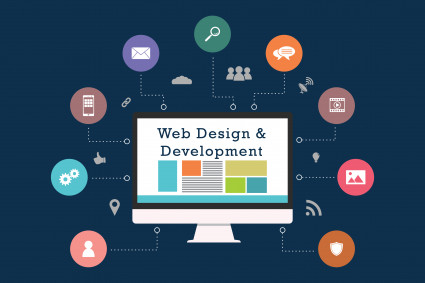
In today's fast-paced world, mobile apps have become an integral part of our daily lives. Mobile apps are designed to provide users with easy access to information, services, and entertainment on their mobile devices. From checking the weather to ordering food, there seems to be a mobile app for everything. In this article, we will explore mobile app development, the process of creating and designing mobile applications for smartphones, tablets, and other mobile devices.
What is Mobile App Development?
Mobile app development is the process of creating and designing software applications for mobile devices such as smartphones, tablets, and wearable devices. Mobile app development can range from creating basic applications to complex ones that incorporate advanced features such as artificial intelligence, machine learning, and augmented reality.
Mobile app development involves designing the user interface, writing code, and testing the app to ensure that it functions properly on a variety of mobile devices. Mobile app developers may work independently, as part of a team, or for a company that specializes in mobile app development.
Types of Mobile Apps
Mobile apps can be categorized into three main types: Native, Web, and Hybrid apps.
1. Native Apps
Native apps are mobile applications that are built specifically for a particular platform, such as Android or iOS. Native apps are designed to take advantage of the unique features of each platform, including the device's camera, GPS, and other hardware. Native apps are built using platform-specific programming languages, such as Java for Android and Swift for iOS.
2. Web Apps
Web apps are mobile applications that are accessed through a mobile device's web browser. Web apps are designed to be platform-independent, meaning they can be accessed from any device with an internet connection. Web apps are built using web development technologies such as HTML, CSS, and JavaScript.
3. Hybrid Apps
Hybrid apps are a combination of native and web apps. Hybrid apps are built using web development technologies, but they are packaged as native apps. Hybrid apps are designed to take advantage of the features of both native and web apps, including the ability to access hardware features and the ability to be distributed through app stores.
The Mobile App Development Process
Mobile app development involves several stages, including planning, designing, development, testing, and deployment.
1. Planning
The first stage of mobile app development is planning. This stage involves identifying the purpose of the app, defining the target audience, and developing a plan for how the app will be built. During this stage, mobile app developers will work with stakeholders to determine the features and functionality that the app will provide.
2. Designing
The second stage of mobile app development is designing. This stage involves creating the user interface, including the layout, graphics, and navigation. Mobile app designers will work with developers to ensure that the app's design is optimized for the target platform.
3. Development
The third stage of mobile app development is development. This stage involves writing the code that will power the app. Mobile app developers will use programming languages such as Java, Swift, and JavaScript to build the app's functionality.
4. Testing
The fourth stage of mobile app development is testing. This stage involves testing the app to ensure that it functions properly on a variety of mobile devices. Mobile app testers will use automated testing tools to check for bugs and other issues, as well as manual testing to ensure that the app is easy to use and performs as expected.
5. Deployment
The final stage of mobile app development is deployment. This stage involves releasing the app to the public. Mobile app developers will submit the app to app stores such as the Apple App Store and Google Play Store. Once the app is approved, it will be available for download to users around the world.
Tools for Mobile App Development
Mobile app development requires a variety of tools to help developers design, develop, test, and deploy mobile applications. Here are some of the most commonly used tools in mobile app development:
1. Integrated Development Environment (IDE)
An Integrated Development Environment (IDE) is a software application that provides developers with a comprehensive environment for writing, testing, and deploying code. IDEs typically include code editors, debugging tools, and build automation tools.
Some popular IDEs for mobile app development include Android Studio for Android apps, Xcode for iOS apps, and Visual Studio for Windows apps.
2. Software Development Kits (SDKs)
Software Development Kits (SDKs) are collections of software development tools that developers can use to create mobile apps for a specific platform. SDKs typically include libraries, code samples, and documentation.
Some popular SDKs for mobile app development include the Android SDK for Android apps, the iOS SDK for iOS apps, and the Windows SDK for Windows apps.
3. Cross-Platform Frameworks
Cross-platform frameworks allow developers to build mobile apps that can run on multiple platforms, such as Android and iOS. Cross-platform frameworks typically use a single codebase, which is compiled into platform-specific binaries.
Some popular cross-platform frameworks for mobile app development include React Native, Xamarin, and Flutter.
4. Analytics Tools
Analytics tools allow developers to track and analyze user behavior within their mobile apps. Analytics tools can help developers identify areas for improvement and optimize the user experience.
Some popular analytics tools for mobile app development include Google Analytics, Mixpanel, and Flurry.
5. Testing Tools
Testing tools allow developers to test their mobile apps on a variety of devices and configurations. Testing tools can help developers identify and fix bugs and other issues before releasing the app to the public. Mobile App Development Services Canada
Some popular testing tools for mobile app development include Appium, XCTest for iOS, and Espresso for Android.
Conclusion
Mobile app development is a complex process that requires a variety of tools and skills. Mobile app developers must be proficient in programming languages such as Java, Swift, and JavaScript, as well as development tools such as IDEs and SDKs. Mobile app development involves several stages, including planning, designing, development, testing, and deployment.
Mobile apps are an important part of our daily lives, providing us with easy access to information, services, and entertainment on our mobile devices. As the use of mobile devices continues to grow, the demand for mobile apps is likely to increase, making mobile app development an increasingly important and lucrative field.


